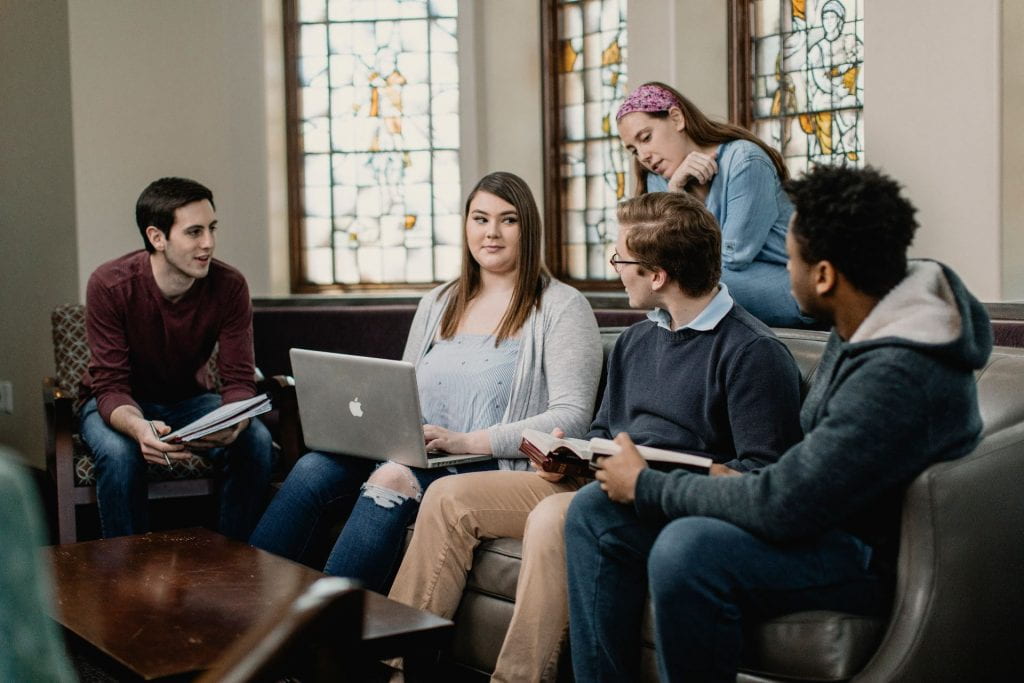Creating Effective Study Groups
Working with peers who share a genuine interest in the same class can be a major benefit to your overall college experience. By studying in groups, you are able to share ideas, improve your study strategies, and develop new relationships.
Did You Know?
Being part of a study group can actually help you better process and retain the material you’re studying. Your group members’ contributions can add valuable insights that you might not have otherwise thought of if you had studied independently. Also, you can practice teaching the material aloud to your group members to be sure you are understanding and are able to explain concepts. Working with others also allows you to create practice tests to help you better prepare for upcoming exams/tests.
Below are tips for a successful study group experience:
Forming a Study Group
- Ask you professor to pass around a sign-up sheet for a study group; this will take the pressure off you to reach out and will attract students who are interested in studying, not socializing
- Allow your professor to know the members of the study group (brownie points!)
- Limit study group size to no more than 6 students; you want to get the chance to share and reinforce your knowledge
- Set a plan and ground rules on the first meeting to determine what your goals are for the study group
- Discuss how each member learns best and how to cater to each learning style
- Set a schedule for how often and how long the meetings will take place
- Establish roles within the group; the facilitator, the clock watcher, and the note taker
Setting Expectations
- Listen and respect one another’s opinions and ideas
- Each member should contribute equally
- Each member should have a position in the group; helps to keep everyone focused and engaged
- Create an environment that allows each member to contribute and ask questions
Creating Agendas
- Review class notes
- Discuss key themes and unclear information
- Work on homework assignments
- Before exams, assign each member to create practice exam questions that can be completed by group members
- Create a game show or Kahoot out of the material to review before exam
- Before papers, after each member has created a rough draft, the group can provide assistance with talking through context and grammatical questions
Defining Roles
- Facilitator
- Ask questions and encourage participating from members
- Keep the group on track throughout the meeting
- Summarize what occurred at the previous meeting
- Ensure that each member’s learning styles and goals are being met throughout the session
- Clock Watcher
- Be aware of the time spent of tasks and subjects
- Indicate when it is it time to move on
- Maintain structure of the session
- Notetaker
- Keep a log of who was present and what was discussed
- Present an agenda for each meeting
- Keep members accountable for their role within the group
- Will set agenda for the next meeting and ask for volunteers for objectives
Involving Professors
- Consult professor for a list of topics, practice questions, problems sets, or ideas to develop
- Attend office hours to resolve content questions
Academic Support Services
Phillips Memorial Library, Room 250
401.865.2494
ssc@providence.edu






